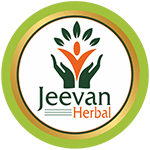Milk Thistle in Ayurveda: A Comprehensive Overview
Botanical Name:Silybummarianum
Common Names: Milk Thistle, St. Mary’s Thistle, Blessed Thistle
Sanskrit Name (commonly used in Ayurveda): While Milk Thistle is not traditionally native to Indian Ayurveda, it is sometimes referred to as “DugdhaKantak” or is used under its botanical name, Silybummarianum, in integrative Ayurvedic practice.
Ayurvedic Perspective on Milk Thistle
Milk Thistle, traditionally used in Western herbalism for over 2,000 years, has gained increasing recognition in modern Ayurveda due to its potent liver-supportive properties. While not originally listed in classical Ayurvedic texts, its pharmacological actions and energetics can be interpreted using Ayurvedic principles.
Pharmacological Properties in Ayurveda
- Rasa (Taste):Tikta (bitter), Kashaya (astringent)
- Veerya (Potency):Sheeta (cooling)
- Vipaka (Post-digestive effect):Katu (pungent)
- Guna (Qualities):Laghu (light), Ruksha (dry)
These properties contribute to its detoxifying, anti-inflammatory, and hepatoprotective actions in the body.
Action on Doshas
Milk Thistle helps balance the Pitta and Kaphadoshas due to its bitter and astringent tastes and cooling nature. It may mildly aggravate Vata when used in excess, due to its drying quality.
- Pitta: Reduces (due to its cooling and bitter properties)
- Kapha: Decreases (because of lightness and astringent and bitter flavors).
- Vata: Could rise as a result of lightness and dryness.
Key Constituents (Phytochemistry)
- Silymarin complex (main active compound): a group of flavonolignans known for hepatoprotective effects.
- Silibinin (Silybin): Most bioactive part of the silymarin complex.
- Flavonoids and polyphenols: Contribute to its antioxidant and anti-inflammatory actions.
Traditional and Modern Uses
Milk Thistle is renowned for its effects on the liver and digestive system, and is used in Ayurvedic-inspired formulations for a range of disorders, especially those involving excess Pitta or toxins (Ama).
-
Liver Protection and Detoxification
- Milk Thistle is one of the most powerful herbs for supporting liver health.
- Protects liver cells (hepatocytes) from toxins, alcohol, drugs, and pollution.
- Used in jaundice, hepatitis, fatty liver disease, and cirrhosis.
-
Detoxification and Rejuvenation (Rasayana)
- Promotes detoxification of blood and tissues.
- Used in Ayurvedic detox programs (Panchakarma) to support liver and gallbladder function.
- Supports elimination of Ama (toxins).
-
Skin Health
- As the liver is closely related to skin health in Ayurveda, Milk Thistle is used to clear chronic skin issues like eczema, acne, and psoriasis.
-
Digestive Support
- Promotes better bile production and aids in fat digestion.
- Useful in conditions like sluggish digestion, bloating, and gallbladder congestion.
-
Anti-inflammatory and Antioxidant
- Reduces cellular inflammation.
- Its antioxidant properties combat oxidative stress, which is key in chronic disease management.
Dosage (General Guidelines)
- Powder (Churna): 1–3 grams daily with warm water, after meals.
- Capsule/Tablets (Standardized Extract): 150–300 mg of silymarin extract, 1–2 times a day.
- Tincture: 30–60 drops, 2–3 times a day in warm water.
Note: Always consult with a qualified Ayurvedic or healthcare practitioner before beginning any herbal treatment, especially for liver-related conditions.
Precautions and Contraindications
- Generally considered safe when taken at recommended dosages.
- May cause mild gastrointestinal upset in sensitive individuals.
- Caution in individuals with low Vata (due to its drying and light qualities).
- May interact with medications metabolized by the liver (like statins, certain antidepressants); supervision is advised.
Benefits Summary
| Benefit | Ayurvedic Explanation |
| Liver protection: | Balances Pitta, detoxifies Rakta (blood), supports Yakrit (liver) |
| Detoxification: | Clears Ama, promotes Agni (digestive fire) |
| Skin health: | Purifies blood, reduces inflammatory skin diseases |
| Antioxidant support: | Rasayana effect, supports Ojas (vital energy) |
| Digestive aid: | Enhances Pachaka Pitta, supports gallbladder |
| Blood sugar regulation | : Bitter taste helps regulate MedaDhatu (fat tissue) and blood sugar |
You can visit our Youtube channel to get knowledge about other Products.
To get more information click here

